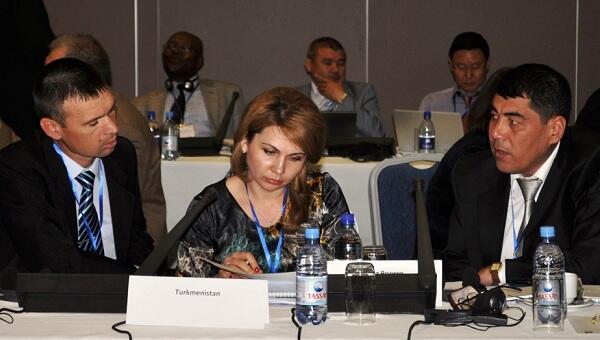Participants discussed best practices in information management in emergencies at a UNFPA workshop in Almaty on 13-14 May 2013.
“Reliable and quickly available information in emergencies helps saving lives and ensures that affected people receive necessary aid without delays, gaps or duplications,” said Marcel Vaessen, the Head of OCHA’s Regional Office.
Globally, the international community, led by the United Nations agencies with a humanitarian mandate, has over the years perfected ways to get and use information to help people in need.
The event organizers, OCHA Regional Office for Caucasus and Central Asia (ROCCA) and UNFPA Sub-regional office for Central Asia (UNFPA SRO), believe that increasing the involvement of government agencies in information management for emergency preparedness and response is key for ensuring effective and efficient responses to humanitarian crises, said Nikolai Botev, the Director of UNFPA’s Sub-Regional Office for Central Asia. He added: “As an agency working with demographic statistics, we recognize that no-one knows the population of a country, and every turn and road bump in that country, better than those working in its national institutions.”
During the workshop, participants enhanced their knowledge on how to tackle data issues that arise in emergencies, assess and map their countries’ vulnerabilities to various crises, and explore the role of partnerships and division of labour for effective responses to disasters and man-made crises can be beneficial to all parties involved.
EECARO press release: https://eeca.unfpa.org/public/pid/13982


